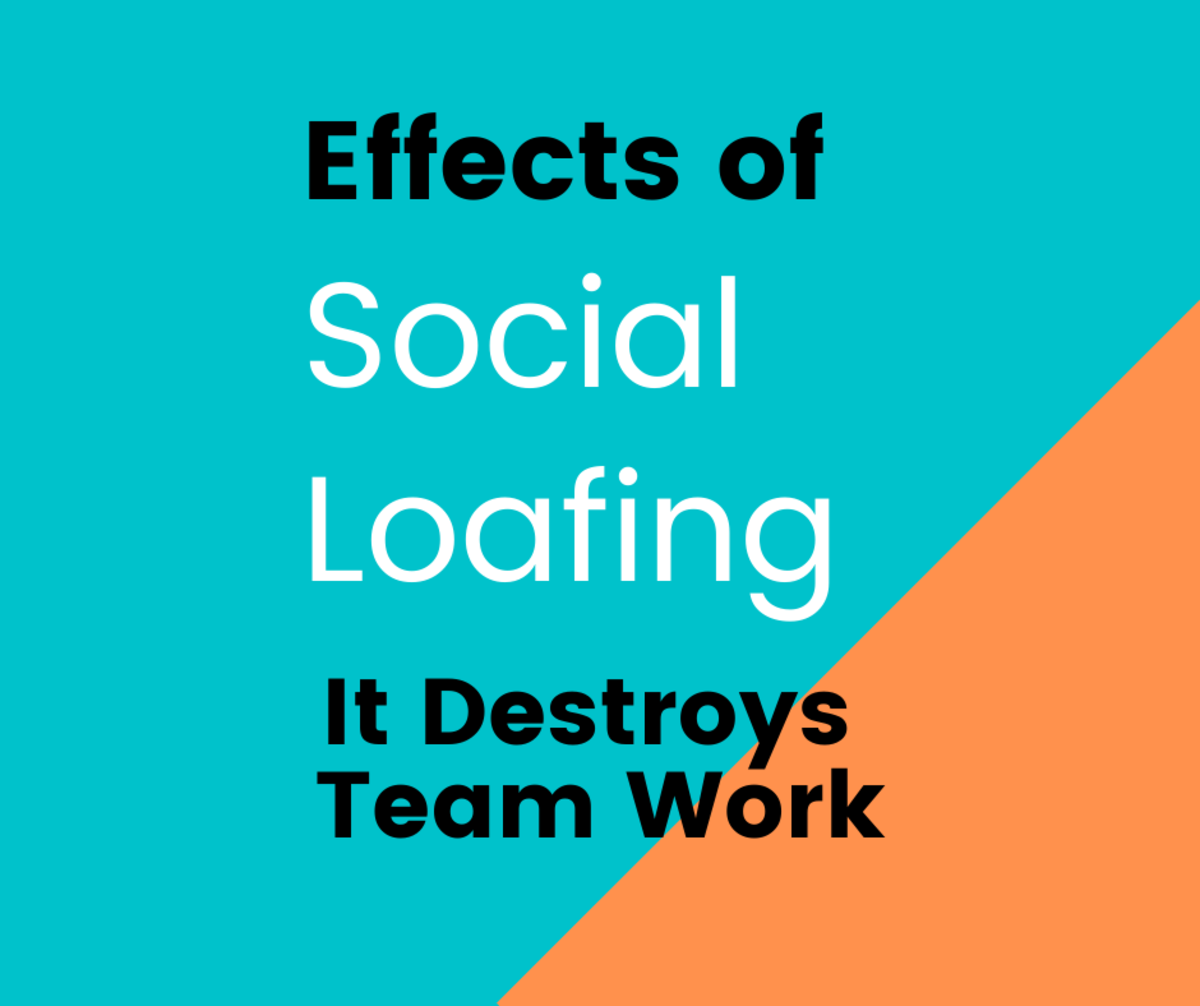Nate's Workplace Survival Guide: Dishonesty in the Work Place and You
Is dishonesty in the work place ever acceptable? Are little white lies as bad as blatant ones? Does telling the truth always get you where you need to go or have there been times when keeping your mouth shut and letting something slide was the best way to go?
Before I go any further, let me just say that there is a line to draw no matter what way you go. I do not advocate any kind of criminal activity such as pilferage (stealing products either from the office or the store) or any theft of any kind. So if you caught doing something that winds up with you getting fired or thrown in jail, it's your own fault. So use your judgment.
Now that my disclaimer is out of the way, let me also point out that I have been forced to keep my mouth shut on a number of occasions just to keep my job. Even when I knew the matter was a legal issue, there are just some days when blowing the whistle can backfire.
Take my oh-so-wonderful two years at Rite Aid. Oh man, the book I could write on my time there. This is just going to have to be enough.
One of the many store managers that had taken the reins with our store, Mary, placed pseudophedrine on the shelf of the medicine aisle. Pseudophedrine, of course, is perfectly legal if you are over eighteen and purchase it at the pharmacy counter.
Now the manager had simply made a mistake. Could happen to anyone. But the big kicker is this, it wasn't just one box. She had placed a price tag on the shelf and stocked it with the pseudophedrine product in question. With the amount of shoplifting going on at that particular Rite Aid location all it would take is for one idiot to steal a box of that stuff and get caught by the police. Then the store could have been legally shut down.
Did I make a fuss about it? Did I take a picture of the scene and send it into the police? Oh hell no. I pulled that from the shelf and tore the price tag right off of it before anyone could be the wiser.
Was this honest behavior? Not in the grand scheme of things, no. The manager could and should have been fired for it since she effectively put a controlled substance on the shelves that could have been released onto the streets. But I decided not to say a word because A: She was the first manager since I started working there not to instantly try making friends with everyone, thereby letting them get away with murder, and B: She actually supported me when I refused to sell alcohol or cigarettes to someone.
In this instance my decision was largely self-serving, though it did have the altruistic benefit of not getting Mary into trouble or the store closed down due to FDA violations. But what if the behavior is something blatant, like seeing a coworker steal money from a drawer?
Should you say something? What if that coworker is a good friend of the manager and you're afraid of having it come back at you should you report it? Like I had to do in the case of Mary and the psuedophedrine you're going to have to use your judgment here.
Most work places have a special number you can call that allows you to discreetly report activity such as internal theft. You don't to give your name or your contact info, although it may help the loss prevention officers in doing something about the activity. You'll also have to write a statement that may or may not be a clinching factor in getting that person fired. Give as much information as you are able to and be honest and if the LP finds your claim to be legitimate you might even get rewarded for your actions.
I've given you an example of a time when gallantly turning a coworker in might not be the best move and an example of when it appears to be a no-brainer. But what about when the question of honesty falls to you? Is there ever a time when it's okay for you to be dishonest?
Again, you have to use your judgment here. I can't tell you which road to take and what not to. All I can say is that whatever decision you make there may or may not be consequences. So here are some examples of moments when honesty may become an issue, along with the pros and cons of those moments. What you do with this advice is up to you.
Calling in Sick
There are a lot of writers on this site that will argue that it's not right to call in sick when you are well enough to work. Then there's the well paid, salaried government employees with the recession proof jobs telling you you should stay home from work when you're sick.
This must be the most ironic statement coming from a guy writing about how to survive in the work place but here it is. For whatever reason you need to call in sick, by all means, call in sick. Do this according to your company's guidelines in calling in sick.
For example: With Rite-Aid you needed to call several hours before your shift starts. That's generally the case with most jobs, but it varies so keep an updated copy of your associate handbook for reference should the question come up.
To me, calling in sick is a matter of semantics. If you're going into work feeling nauseous because of the way you are treated, then no one is going to fault you for taking a day off to get your stomach in order before going back in there.
Heck, one time, I called in sick because I was literally having a full blown anxiety attack over losing my keys which was only on top of all of the stress I was dealing with at work. The manager in charge at the time insisted that I get myself checked out at the hospital and knew me well enough to know I wasn't faking it.
But if you call in sick and you're really just trying to get a day off, be smart about it. Stay at home. If you go on line stay away from social networking sites where your coworkers know you linger. If you need to leave the house there is a possibility that you will be seen by a coworker or even your boss, but as long as you're not going out to party or something stupid like that you can easily explain it away by saying you needed to head to the grocery store.
Remember, you can lose a day's worth of pay doing this. There is also a small possibility that you will be written up or possibly terminated if you are “caught”. Also the health department requires that some places not allow you to return to work until you have a doctor's note if you miss too many days due to “illness”.
Milking the Clock
In many stores or places where you are paid by the hour, someone may monitor your time card or punches.
When I worked at the airport I would usually get there about five o'clock and punch in right away. But since I was a detailer, my job didn't actually start until last four planes of the night landed, because those were the ones that needed to be made acceptable for customers to fly on the next morning. I wasn't actively trying to milk the clock here, but my boss did ask me to start punching in later since basically I was sitting around doing nothing for four hours and being paid for it. No big deal.
Now when I worked at Price Chopper, TJ Maxx, and now that I'm working at K-mart there is simply no unauthorized overtime. Everyone has to punch in and out exactly when they are scheduled unless authorized by a manager. And your lunch has to be taken and you cannot punch back in early.
This was not the case with Brooks and Rite Aid. There, while it was encouraged that you take your lunch, you had the option of choosing not to take it so long as you either signed a special paper saying you made the choice or just let the manager know you weren't taking it. If you weren't working as a cashier this usually wasn't a problem.
Also, while Rite Aid does monitor your punches carefully for unauthorized punches, there is a way to get that extra hour without getting in trouble.
Lets say you work forty hours a week full-time at a job similar to Rite Aid, but you need an extra hour or two to make things work. Your boss or the manager in the store won't let you punch in a whole hour early, so what do you do?
The trick here is to punch in ten minutes early when you get in and ten minutes later when you leave. That's twenty extra minutes per day times five days. As long as you are using that twenty minutes to work and not to goof off, you're technically not cheating the company because you are doing exactly what you are paid to do.
What gets people into trouble with this one is blatant stupidity. They'll punch in but they won't punch out. And then when they punch back in, they think they've gotten away with being paid for hours they didn't work. This logic kicks them in the ass when someone in book keeping catches on to their award winning act of stupidity and sends someone in to investigate.
Just remember, you can still be terminated if your boss asks you point blank not to punch in accept when you are scheduled and you keep doing it.







